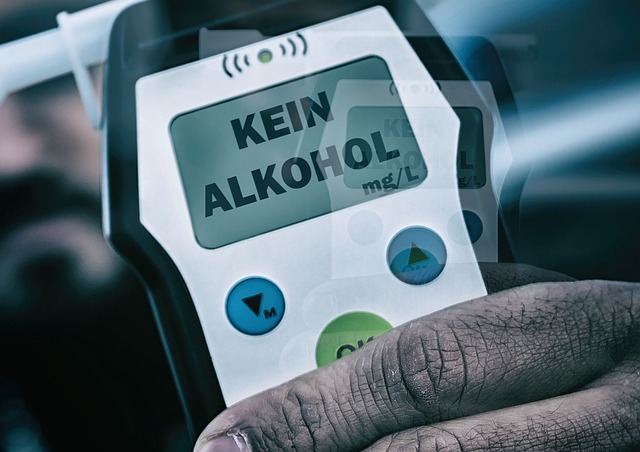Understanding your legal rights during traffic stops, especially on college campuses, is vital for maintaining safety and fairness in DUI prevention efforts. U.S. drivers have the right to remain silent, refuse incriminating questions, and consult an attorney. Officers can only conduct searches with a warrant or under specific conditions, requiring probable cause. College students should be aware of their rights regarding field sobriety tests and breathalyzer examinations to avoid automatic charges. Documenting interactions and staying calm can prevent misunderstandings and ensure fair treatment. College campuses use various initiatives, including counseling and legal aid, to support students facing DUI charges while promoting responsible behavior.
“Navigating traffic stops can be stressful, especially for college students facing potential DUI charges. Understanding your legal rights is crucial during these interactions. This guide delves into essential aspects of college campus DUI prevention, offering insights on what to expect when pulled over and how to protect yourself. From documenting officer interactions to knowing BAC limits, this article equips students with knowledge to defend their rights. Access valuable resources for support and stay informed about your options.”
- Understanding Your Legal Rights During Traffic Stops
- College Campus DUI Prevention: A Student's Guide
- What to Expect When Pulled Over by Law Enforcement
- Protecting Yourself: Documenting Interactions with Officers
- Know the Limits: Blood Alcohol Content (BAC) Levels for Students
- Resources and Support for College Students Facing DUI Charges
Understanding Your Legal Rights During Traffic Stops

During a traffic stop, it’s crucial to be aware of your legal rights to ensure a safe and fair interaction with law enforcement. In the United States, all drivers have the right to remain silent and refuse to answer questions that might incriminate them. This is particularly important if you’re facing potential charges related to College Campus DUI Prevention. You are also entitled to an attorney during any questioning and have the right to have your vehicle searched only with a warrant or based on specific circumstances.
Knowing these rights can help de-escalate potentially tense situations. Remember, law enforcement officers must have probable cause to search your vehicle or arrest you. If you feel your rights are being violated, politely but firmly assert them and request to speak with a supervisor. Being informed and assertive is key to protecting yourself during traffic stops.
College Campus DUI Prevention: A Student's Guide

College students often find themselves navigating the vibrant, bustling college campus environment, but it’s crucial to be aware of your rights, especially when it comes to DUI prevention. As a student, understanding the legal implications and your entitlements during traffic stops is essential. If you’re stopped by law enforcement while on or near campus, remember that you have the right to remain silent; anything you say can and will be used against you in court.
It’s also vital to know that you can refuse to take field sobriety tests and breathalyzer examinations. These tests are not mandatory, and refusing them won’t automatically lead to a DUI charge, but it’s wise to exercise your right to consult with an attorney first. College campus DUI prevention starts with educating yourself about these rights and staying informed about local laws and regulations related to alcohol consumption and driving.
What to Expect When Pulled Over by Law Enforcement

When pulled over by law enforcement, it’s important to stay calm and remember your rights. In areas like college campuses where DUI prevention is a priority, officers are often focused on ensuring safety and may conduct checks for impaired driving. Expect a routine interaction where the officer will ask for your license, registration, and proof of insurance. They may also request you step out of the vehicle if they suspect any impairment or unusual behavior.
During such stops, remain respectful and cooperative. Refusing to answer questions or perform field sobriety tests could be detrimental to your case. If you have nothing to hide, complying with these requests can help avoid misunderstandings. Always remember that your right to a lawyer comes into play, especially if charged with DUI, so it’s wise to exercise this right once the situation escalates beyond a routine traffic stop.
Protecting Yourself: Documenting Interactions with Officers

When interacting with law enforcement during a traffic stop, it’s crucial to protect yourself and ensure your rights are respected. One effective strategy is to document your interactions with the officers involved. This can include taking notes on the date, time, location, and details of the stop. Note down any questions you ask and their responses—this record can serve as valuable evidence if any discrepancies arise later.
Additionally, capturing visual evidence can be powerful. Consider using your phone to take photos or videos of the stop from a safe distance. Documenting interactions on a college campus, especially with regard to DUI (Drunk Driving Under Influence) prevention, can help students protect themselves and hold officers accountable, ensuring fair treatment during these critical moments.
Know the Limits: Blood Alcohol Content (BAC) Levels for Students

On college campuses across the nation, College Campus DUI Prevention is a critical issue. Understanding blood alcohol content (BAC) limits is a crucial step in avoiding such incidents. For students, it’s essential to know that the legal BAC limit is 0.0% while operating a vehicle. Any detectable amount of alcohol can impair judgment and motor skills, posing significant risks on the road.
In many states, law enforcement officers are vigilant about College Campus DUI Prevention during events or late-night hours when students may be more likely to engage in drinking. Students should be aware that even a few drinks can elevate their BAC levels, especially if they plan to drive or operate any machinery. Educating oneself about these limits empowers students to make responsible decisions and enjoy campus life safely.
Resources and Support for College Students Facing DUI Charges

Facing DUI charges can be a daunting experience, especially for college students who are navigating both their academic and personal lives. The stress and confusion can feel overwhelming, but there are resources available to support them during this challenging time. Many colleges and universities offer programs dedicated to student well-being, including counseling services and legal aid clinics that specialize in DUI cases. These resources provide a safe space for students to discuss their options, understand their rights, and make informed decisions.
College campus DUI prevention initiatives also play a crucial role in helping students avoid such situations in the first place. Educational workshops and awareness campaigns can educate students about the consequences of impaired driving and promote responsible behavior. Additionally, peer support groups provide a sense of community and understanding among fellow students who have experienced similar circumstances, fostering a culture of safety and accountability on campus.
Understanding your rights during traffic stops is a vital step in protecting yourself, especially on college campuses where DUI prevention is a key focus. By knowing what to expect and how to document interactions with officers, students can navigate these situations more confidently. Remember, knowledge is power, and being aware of BAC limits can prevent serious consequences. If you find yourself facing DUI charges, don’t hesitate to reach out for support—there are resources available to help guide you through this challenging time. Stay informed, stay safe, and remember the importance of making smart choices on and off campus.






